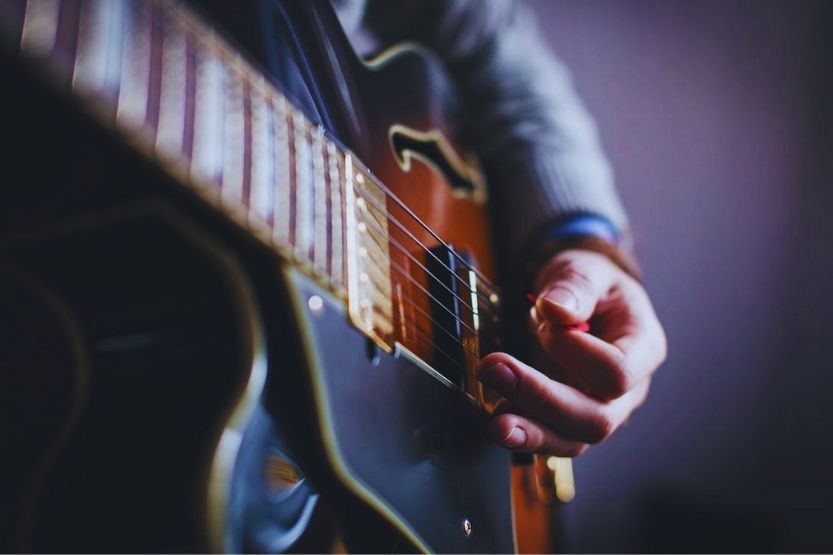The question of how long it takes to become proficient at guitar is a common one with no straightforward answer. It’s a journey that varies greatly depending on various factors, including the individual’s natural talent, dedication, practice habits, and the definition of “good.” In this article, we’ll delve into the complexities of this question, exploring the factors that influence progress, and provide some helpful tips to accelerate your learning.

How Long Does It Take To Get Good At Guitar
The path to guitar mastery is a marathon, not a sprint. It demands patience, resilience, and consistent effort. While some individuals may experience rapid progress, for most, it’s a gradual and steady process that requires perseverance and a love for the instrument.
Defining “Good”
Before we delve into the intricacies of guitar proficiency, it’s essential to define what we mean by “good.” Proficiency is subjective and can vary widely depending on individual goals. For some, it may simply mean being able to strum a few chords and sing along, while for others, it might involve mastering complex fingerpicking techniques and improvising solos. Ultimately, the definition of “good” is personal and should align with your musical aspirations.
With that in mind, let’s explore the various factors that influence the timeline to guitar proficiency:
Natural Talent: While some individuals possess a natural affinity for music and guitar playing, it’s important to remember that talent alone is not sufficient. Hard work, dedication, and effective practice are essential for unlocking your guitar playing potential.
Dedication: The amount of time and effort you invest in practicing is directly proportional to your progress. Consistent and focused practice sessions are crucial for developing muscle memory, improving finger dexterity, and internalizing music theory.
Practice Habits: The quality of your practice is just as important as the quantity. Aim for structured and intentional practice sessions that focus on specific techniques or musical concepts. Avoid mindless repetition and strive to actively engage with the material.
Learning Resources: The availability and quality of learning resources can significantly impact your progress. Seek out reputable guitar teachers, online courses, books, and instructional videos that align with your learning style. Surround yourself with resources that inspire and challenge you.
Musical Goals: Your musical aspirations will influence the time it takes to achieve proficiency. If you aim to master advanced techniques or play in a professional capacity, you can expect to invest more time and effort compared to someone who simply wants to learn a few basic chords for recreational purposes.
Tips and Expert Advice
To accelerate your journey to guitar proficiency, consider the following tips and expert advice:
Set Realistic Goals: Avoid overwhelming yourself with unrealistic expectations. Break down your learning journey into smaller, achievable milestones. Celebrate your progress and don’t get discouraged by setbacks.
Find a Good Teacher: A skilled guitar teacher can provide invaluable guidance, personalized feedback, and motivation. They can help you develop effective practice routines and overcome technical challenges.
Practice Regularly: Consistency is key. Aim for at least 30 minutes of dedicated practice each day. Break your practice sessions into smaller chunks to enhance focus and reduce burnout.
Focus on Technique: Don’t rush into learning complex songs before mastering the basics. Spend time developing proper finger placement, strumming technique, and picking patterns.
Listen to Music: Immerse yourself in various guitar-based music genres. Listen attentively to the techniques, melodies, and rhythms employed by skilled guitarists. This will inspire you and help you develop a discerning ear.
Frequently Asked Questions (FAQs)
Q: Can I learn guitar without a teacher?
A: While it’s possible to learn guitar without a teacher, having a qualified instructor can significantly accelerate your progress and provide valuable guidance.
Q: How long does it take to learn the basics of guitar?
A: With consistent practice, you can expect to learn the fundamental chords, strumming patterns, and basic music theory within a few months.
Q: What is the best way to practice guitar?
A: Focus on structured and intentional practice sessions. Break down complex techniques into smaller steps, practice with a metronome, and record yourself to identify areas for improvement.
Q: Is it too late to start learning guitar?
A: It’s never too late to pursue your passion for guitar. With dedication and perseverance, individuals of all ages can learn and enjoy playing the guitar.
Conclusion
The journey to guitar proficiency is unique and rewarding. While the exact timeline may vary, with dedication, effective practice, and a love for music, you can achieve your guitar playing goals. Remember, the path to mastery is a marathon, not a sprint. Embrace the process, enjoy the challenges, and never stop learning.
Are you eager to embark on your guitar-playing adventure? Share your thoughts and questions in the comments below, and let’s continue exploring the world of music together!
How Long Does It Take To Get Good At Guitar

Image: allfunintheworld.com










